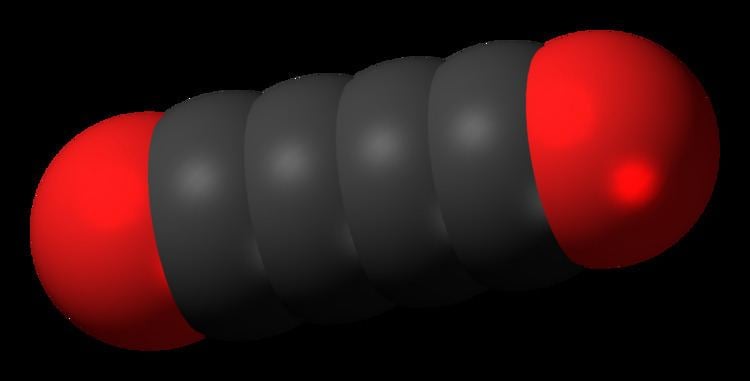Formula C4O2 | ||
 | ||
Tetracarbon dioxide is an oxide of carbon, a chemical compound of carbon and oxygen, with chemical formula C4O2 or O=C=C=C=C=O. It can be regarded as butatriene dione, the double ketone of butatriene — more precisely 1,2,3-butatriene-1,4-dione.
Butatriene dione is the fourth member of the family of linear carbon dioxides O(=C)n=O, that includes carbon dioxide CO2 or O=C=O, ethylene dione C2O2 or O=C=C=O, carbon suboxide C3O2 or O=C=C=C=O, pentacarbon dioxide C5O2 or O=C=C=C=C=C=O, and so on.
The compound was obtained in 1990 by Maier and others, by flash vacuum pyrolysis of cyclic azaketones in a frozen argon matrix. It was also obtained in the same year by Sülzle and Schwartz through impact ionization of ((CH3-)2(C4O2)(=O)2=)2 in the gas phase. Although theoretical studies indicated that the even-numbered members of the O(=C)n=O family should be inherently unstable, C4O2 is indefinitely stable in the matrix, but is decomposed by light into tricarbon monoxide C3O and carbon monoxide CO. It has a triplet ground state.
